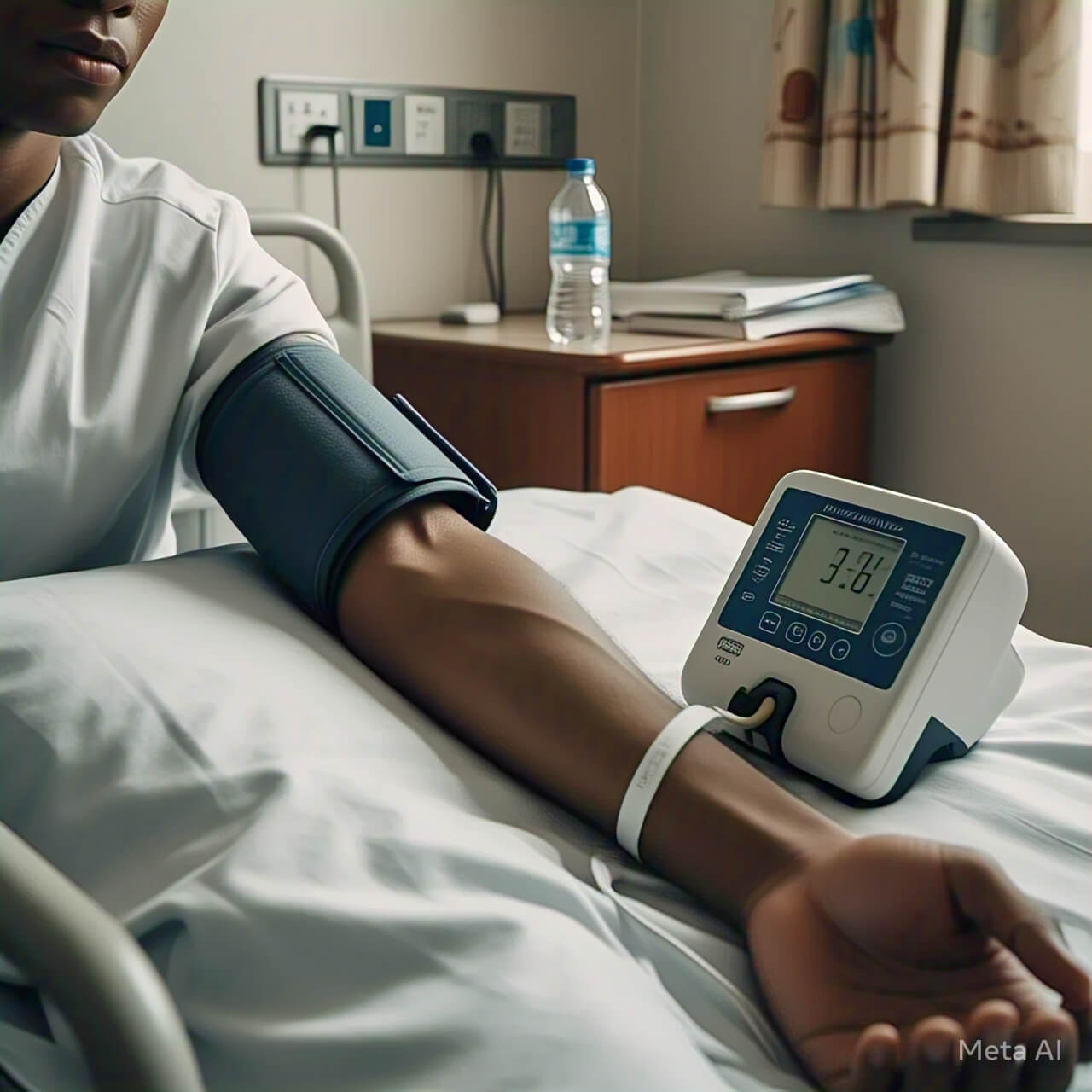High blood pressure (hypertension) is a common health problem that can lead to serious issues like heart disease and stroke. The good news is that you can lower your blood pressure naturally without relying only on medicines. By making simple changes in your diet, exercise, and daily habits, you can keep your blood pressure under control. Eating healthy foods, reducing stress, staying active, and avoiding bad habits like smoking or too much alcohol can make a big difference. This article will give you 10 easy tips and explain how each method works to help you live a healthier life.

10 Easy Tips to Lower Blood Pressure Naturally
- Eat less salt.
- Exercise daily.
- Lose extra weight.
- Eat more fruits and vegetables.
- Reduce stress.
- Avoid too much alcohol.
- Quit smoking.
- Drink less caffeine.
- Get enough sleep.
- Check your blood pressure regularly.
1. Eat Less Salt to Control Blood Pressure
Eating too much salt raises blood pressure because it makes your body hold extra water, putting pressure on your blood vessels. Processed foods, canned soups, and fast food contain high amounts of sodium. Instead, use herbs and spices for flavor. Try to eat fresh, home-cooked meals and check food labels for sodium content. The American Heart Association recommends no more than 2,300 mg of sodium per day, but ideally, aim for 1,500 mg if you have high blood pressure.
2. Exercise Daily for a Healthy Heart
Regular physical activity strengthens your heart, helping it pump blood more easily. Just 30 minutes of walking, swimming, or cycling daily can lower blood pressure by 5-8 mmHg. Exercise also helps with weight loss and reduces stress. You don’t need intense workouts—simple activities like dancing, gardening, or taking the stairs can make a difference. Start slow and gradually increase your activity level.
3. Lose Extra Weight to Reduce Pressure on Your Heart
Being overweight forces your heart to work harder, increasing blood pressure. Losing even 5-10 pounds can help. Focus on a balanced diet with whole grains, lean proteins, and healthy fats. Avoid sugary drinks and junk food. Combine diet with exercise for the best results. Measuring your waistline is also important—men should aim for less than 40 inches, and women less than 35 inches.
4. Eat More Fruits and Vegetables for Better Blood Pressure
Fruits and vegetables are rich in potassium, which helps balance sodium levels in your body. Bananas, spinach, sweet potatoes, and oranges are great choices. They also provide fiber, which improves heart health. Try to fill half your plate with veggies at every meal. A diet like the DASH (Dietary Approaches to Stop Hypertension) plan is proven to lower blood pressure naturally.
5. Reduce Stress to Keep Blood Pressure Normal
Stress temporarily raises blood pressure, and chronic stress keeps it high. Relaxation techniques like deep breathing, meditation, and yoga can help. Take breaks during work, spend time with loved ones, and do hobbies you enjoy. Laughter and music also reduce stress. If stress feels overwhelming, talk to a doctor or counselor for support.
6. Avoid Too Much Alcohol to Prevent High Blood Pressure
Drinking too much alcohol raises blood pressure and damages the heart over time. Men should have no more than two drinks per day, and women should limit to one. Red wine in moderation may have some heart benefits, but excessive drinking harms your health. If you struggle to cut back, seek help from a healthcare provider.
7. Quit Smoking to Improve Heart Health
Smoking damages blood vessels and raises blood pressure immediately. Even secondhand smoke is harmful. Quitting improves circulation and lowers the risk of heart disease. Use nicotine patches, counseling, or support groups if needed. Your blood pressure starts improving within 20 minutes of your last cigarette.
8. Drink Less Caffeine to Avoid Blood Pressure Spikes
Caffeine can cause a short-term spike in blood pressure. If you’re sensitive, reduce coffee, energy drinks, and soda. Switch to herbal teas or decaf options. Monitor how caffeine affects you—some people tolerate it better than others.
9. Get Enough Sleep for Healthy Blood Pressure
Poor sleep affects hormones that regulate blood pressure. Aim for 7-9 hours per night. Keep a regular sleep schedule, avoid screens before bed, and create a calm sleeping environment. Sleep apnea (a condition where breathing stops during sleep) also raises blood pressure—see a doctor if you snore loudly or feel tired after sleeping.
10. Check Your Blood Pressure Regularly
Monitoring helps track progress and detect problems early. Home blood pressure monitors are affordable and easy to use. Record your readings and share them with your doctor. If numbers stay high despite lifestyle changes, medical treatment may be needed.

FAQs About Lowering Blood Pressure Naturally
| Question | Answer |
|---|---|
| Can drinking water lower blood pressure? | Yes, staying hydrated helps maintain healthy blood pressure levels. |
| How long does it take to lower blood pressure naturally? | It may take weeks to months, depending on lifestyle changes. |
| Is banana good for high blood pressure? | Yes, bananas are high in potassium, which helps lower blood pressure. |
| Can stress cause high blood pressure? | Yes, chronic stress keeps blood pressure elevated over time. |
| What foods should I avoid with high blood pressure? | Avoid salty snacks, processed meats, and sugary drinks. |
By following these natural methods, you can lower your blood pressure and improve your overall health. Start with small changes and stay consistent for the best results.


